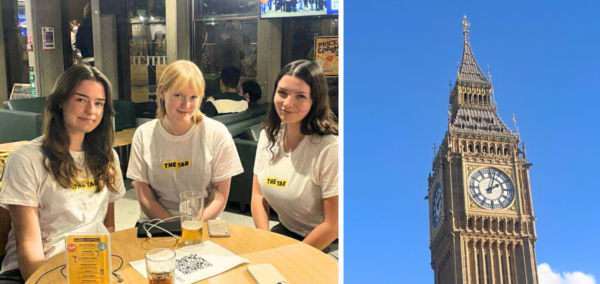
New ‘soft skills’ programme offered to Manchester students ‘too afraid’ to speak on phone
The scheme will target thousands of ‘digital natives’ to develop skills in empathy and time management
Students in Greater Manchester are set to learn “soft skills” including empathy and time-management in a teaching trial aimed at developing “everyday but essential” tools.
The UK-first tryout will target young people, labelled as Gen Z, in developing personal attributes needed to thrive in the workplace.
Over 10,000 young people in the region are set to benefit, with a number of universities delivering the programme. Partners include University of Manchester, Manchester Metropolitan and University of Salford.
This follows reports of employers stating the group of “digital natives” are too afraid to speak on the phone or do interviews.
Launched in Greater Manchester this week by the Unesco-partner non-profit, Higher Health, Skills 4 Living will target the age range that have grown up “lacking some key social skills.”
The project initially launched in South Africa over six years ago, this expansion will be the first outside of Africa.
Leading child psychologist, Professor Sandeep Ranote, told The Guardian that “young people are going into a world with huge challenges that I certainly didn’t have”
“I call it the five Cs: They lived through Covid, climate change, cost-of-living, cyberspace and conflict.”
Over 10,000 young people in the region are set to benefit, with a number of universities partnering to deliver the programme. Partners include University of Manchester, Manchester Metropolitan and University of Salford.

Image via Google Maps
Students will participate in an online curriculum, with assessments expected to be completed by interacting in person with others. Seminars will cover everything from spotting fake news, staying safe online, challenging racism, gambling awareness, avoiding scams and sexism and homophobia.
Further expansions have been discussed to include 16-25 year olds from groups including young offenders, military personnel and refugees.
Most Read
Consultancy firms including Deloitte and McKinsey have published recent studies on how to best recruit and retain talent from Gen Z— people born between mid 1990s and mid 2010s.
The group are expected to make up 27 per cent of this years workforce, and industry leaders are attempting to tackle the misunderstandings around the generation of “digital natives.”
James O’Dowd, founder of recruitment firm Patrick Morgan, previously said that remote working options and reliance on texting has left many younger hires “unprepared for the basics of working life.”
A Greater Manchester Chamber of Commerce survey found that employers in Manchester are increasingly concerned that gen-z recruits are lacking “essential life skills”, including empathy, time management, speaking to customers, problem-solving and critical thinking.
Professor Ranote, who is both the chair of Higher Health’s UK body and the clinical director for mental health at NHS Greater Manchester, stressed the importance of equipping young people with these skills to enter the workplace, as a “pre-prevention” for reducing anxiety and depression.
She said that “the top three things that young adults are worried about are climate change, job success, and bullying and relationships.
“When I started in my career as a consultant in 2005, one in 10 young people had a diagnosable mental health condition. We’re now [at] one in five. That’s not okay. Could it have been prevented? Yes is the answer. This is a toolkit to prepare young people for, even in the space of 25 years, a very different global world.”
Andy Burnham, Mayor of Greater Manchester, openly welcomed the programme, explaining that: “Preparing young people to lead confident, healthy and productive lives is key to their employability and long term wellbeing. I’m proud that Greater Manchester’s young people will be the first in the UK to access this opportunity.”
Featured image via Google Maps






















